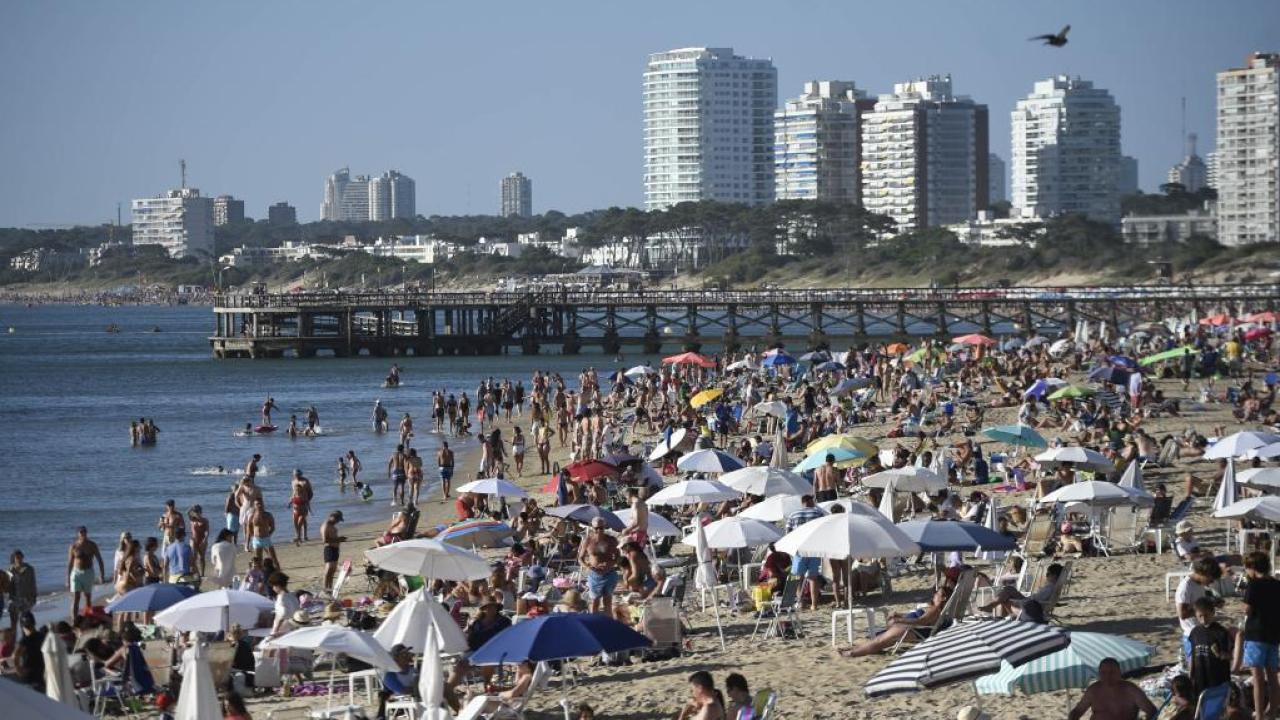
The regulation seeks to resolve the tense coexistence between the traditional hotel industry and digital platforms.
The Tourism Committee of the House of Representatives approved the bill that seeks to regulate tourist rentals in private homes, a regulation that seeks to provide a solution to the coexistence between the traditional hotel industry in Uruguay and accommodations offered through platforms such as Airbnb, Booking and/or Mercado Libre.
The bill had recently been approved by the Senate and now must be discussed by the House of Representatives for final approval. The bill, which establishes a general framework for tourist accommodation activities in private homes, is an old demand of sectors linked to tourism, mainly in the department of Maldonado.
The initiative was developed by the Ministry of Tourism (Mintur), led mainly by the then minister, Tabaré Viera, together with the specialist in tourism issues, Julio Facal. It is also a project that has the support of the Chamber of Tourism, as well as the large companies representing the traditional Uruguayan hotel industry.
Airbnb hosts, as well as other owners of properties for temporary rental, rejected the project in Parliament, saying that the initiative was tailored to the hotel sector.
Although they are not opposed to regulations governing the sector, they asked legislators to analyze the alternative bill they presented.
A few days ago, a committee of representatives from the Chamber of Tourism went to the Tourism Committee of the House of Representatives to defend the bill.
At that time, the former president of the tourism association and current member of the board of directors, Juan Martínez, said that the initiative "was launched due to the rapid pace of technological changes in the world and how platforms and e-commerce have invaded our lives."
In this regard, he defended the position of the business sector and said that beyond the impact that temporary rental platforms have on the competitiveness of traditional hotels, "there is an issue of social impact" linked to the lack of security since those who are formally established, in addition to paying taxes and having the respective permits, are connected to Interpol.
When someone arrives at a hotel, "they ask for your name and ID, and Interpol knows who is entering the establishment within a minute, and we know this because it has happened to me personally that they have come to look for someone for being on that list. However, in the accommodations that are nearby, we don't know who is staying there; we don't know," he stressed.
According to the director of Camtur, the ultimate goal of the project is that "everyone who signs a temporary rental contract, everyone who makes that accommodation a regular business practice, with the exception of Mrs. Maria, who rents her little house for 15 days to pay the contribution and taxes of the year, is registered, and that the e-commerce platforms incorporate that registration number in their offer via Internet to know that it is a formal, authorized establishment and that it will be controlled as to who stays there and the quality of the service they provide."
For his part, the vice president of Camtur, Francisco Rodríguez, stressed that in Punta del Este there are between 10,000 and 15,000 hotel beds, while if this other type of accommodation is included there are "over 120,000, we are not talking about something that is happening lightly in the country," he said.
Among other points, the project provides that properties that provide accommodation on a daily basis and accumulate rentals of more than 120 days in a year will be considered a tourist provider.
In such cases, the text establishes that the owner, administrator or operator of that property for tourist use must make a sworn declaration in the Mintur registry of tourist operators.
In addition, the registration number granted by the registry must be included in any offer made through any tourist offer channel, both physical and electronic.
Furthermore, those responsible for these properties must inform the Ministry of the Interior of the identity of the people staying in the property.
They must also submit to the controls and inspections determined by the Mintur and report annually or when determined the number of tourists staying at the property; the number of days in which the accommodation service was provided under the regime established by law; and any other information established in the regulations.
In short, they will have the same rights and obligations as formal accommodation establishments in the hotel sector that carry out business activity on a regular basis.









